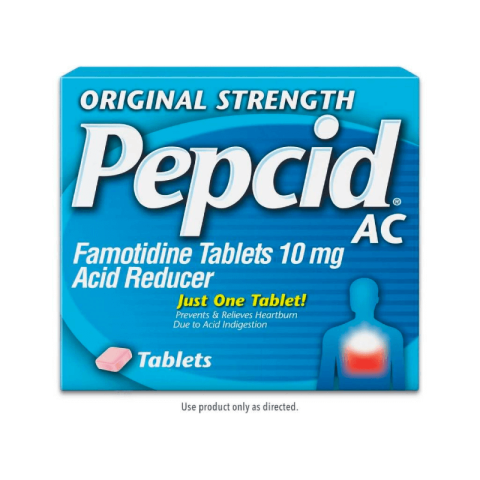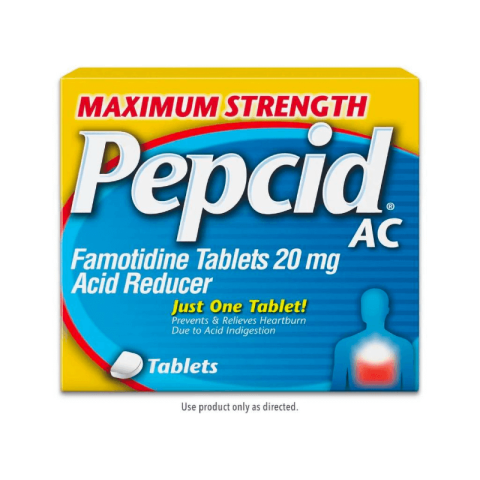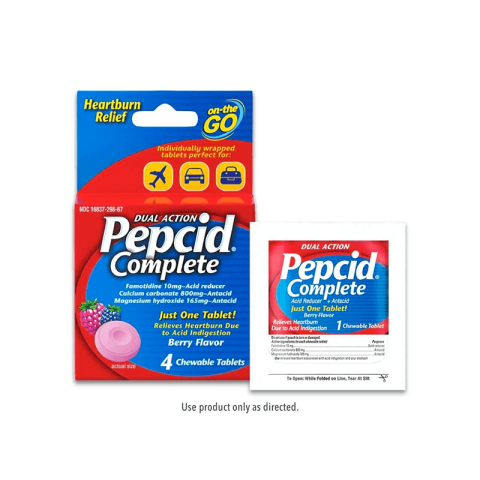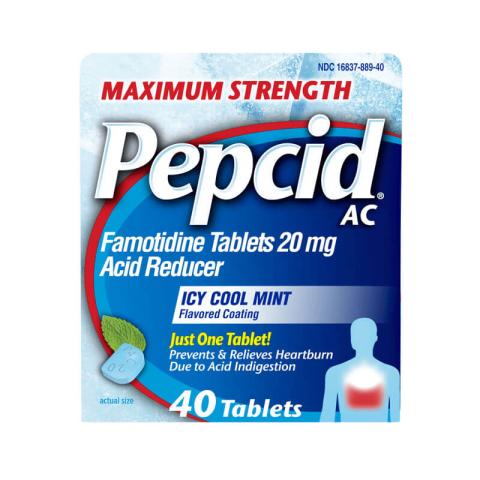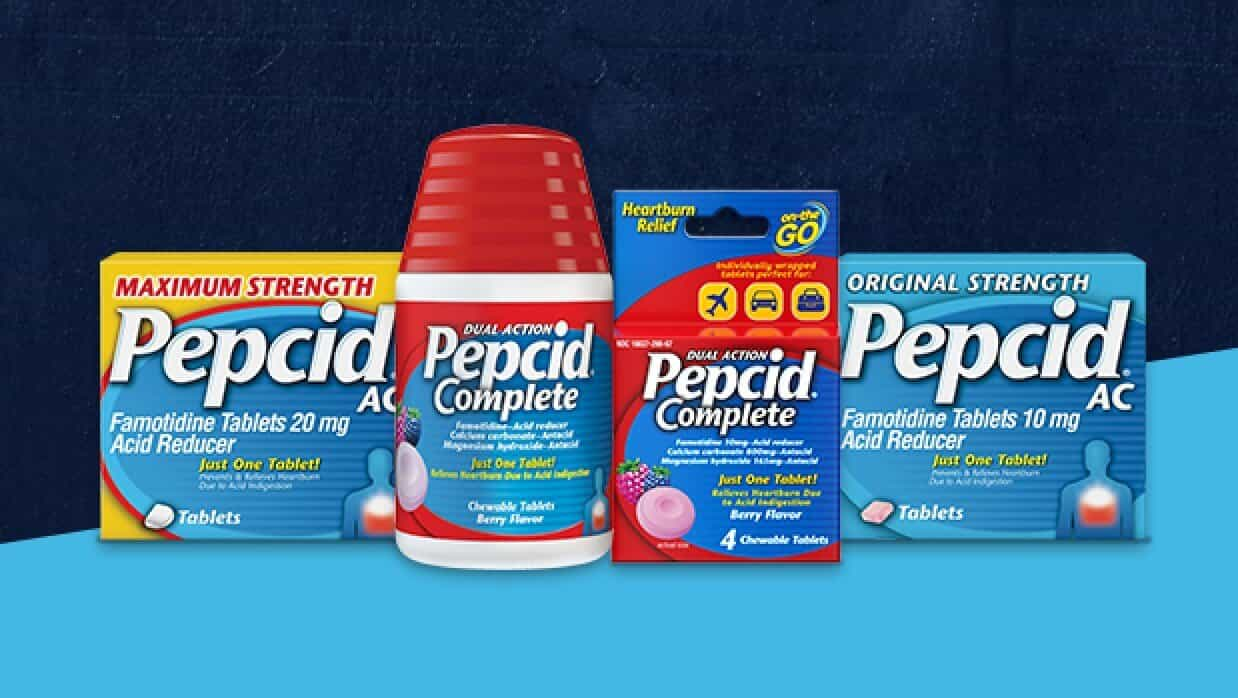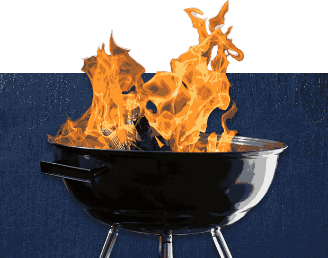The Connection Between Stress and Heartburn
The link between stress and heartburn was first uncovered nearly 20 years ago. Researchers found that when people experienced a major life event, they were more likely to report heartburn symptoms for several months afterwards2.
More recent research has continued to explore the link between stress and heartburn. One scientific study found that people with acid reflux are almost twice as likely to say they deal with a lot of stress3. Other research has found that high stress levels are also found in people with other gastrointestinal (GI) symptoms like bloating, feelings of fullness, constipation, and diarrhea4,5.
Researchers are still learning about how stress and heartburn are connected. They know that the brain and the digestive system communicate with each other through a system called the brain-gut axis. When the brain is feeling stressed, the brain-gut microbiota are disrupted and release various substances that can affect the way the digestive organs work. This process may1:
- Slow down digestion, causing food to sit in the stomach longer and leading to a higher chance that stomach juices flow into the esophagus1.
- Encourage the stomach to produce more acid1.
- Affect how the stomach heals and regenerates new tissue1.
- Create gaps in between the cells of the esophagus lining, allowing stomach acid to leak out and cause more pain6.
Stress may make people more aware of their heartburn pain7,8, and for some, stress can make some more likely to engage in behaviors that may trigger heartburn, such as eating fattier foods or smoking cigarettes9. It doesn’t help that there seems to be more reasons to feel stressed these days. One study found that more people have been experiencing gastrointestinal symptoms, including heartburn, since the COVID-19 pandemic10.
Everyone feels stressed from time to time — it’s a normal part of life. Learning how to better manage life’s stressors can help you achieve better health.
How to Manage Stress and Heartburn
Several activities and habits can help you manage stress that may worsen or trigger heartburn and acid reflux. Try adjusting your daily routine to include things like11,12:
- Meditation: Mindfulness practices, breathing exercises, and guided relaxation activities are proven stress relievers. Many meditation-related books, websites, videos, and smartphone apps are available.
- Getting more physical activity: Moving around more every day is good for your mind. This doesn’t have to be an intense gym workout, either — a walk around your neighborhood or a cleaning session can be good exercise! Additionally, activities like yoga and tai chi have known stress-busting abilities.
- Sleeping better: Go to bed a little earlier, get some earplugs or blackout curtains, and avoid screens before bed.
- Being more social: Keeping in touch with loved ones can improve mental health. Invite family over for a game night, call up a friend, or join a local or online community related to one of your interests.
- Stepping away from the news or social media: Occasionally taking breaks from stressful TV or websites can help you avoid additional stress.
- Streamlining your schedule: If you have too much on your plate, delegating or saying no to new responsibilities may help lessen your mental burden.
If you can’t seem to manage your stress, or you are feeling overwhelmed, it may be time to talk to a healthcare professional. Your doctor or a counselor can introduce you to ways to manage stress that may be a better fit for your personal needs.
How to Reduce Heartburn
Regardless of the trigger of your heartburn, you may be able to get relief by making a few diet and lifestyle changes13.
Diet Changes
To help prevent acid reflux, cut out fatty and spicy foods from your diet as well as acidic items like tomatoes and citrus fruits. Additionally, stay away from heartburn-triggering drinks containing alcohol, caffeine, or carbonation14.
Eating a balanced diet may be extra difficult when you’re feeling stressed. Try keeping some healthy snacks on hand so you aren’t as tempted to reach for packaged foods or run through the drive-thru when you’re facing extra pressure.
Eat Smaller, More Frequent Meals
A large meal puts extra pressure on your stomach, which can force digestive juices into your esophagus13. Try eating only a little a time every couple of hours, especially when you’re facing extra stress.
Stay Upright After Eating
Try to stay sitting upright or standing for a couple of hours after eating a meal to give food time to clear out of your stomach. Minimize exercise and activities that require you to bend over soon after eating13.
Additionally, wait three or four hours after eating before lying down to sleep. Although it’s easy to eat dinner late after a long and stressful day, making time for dinner earlier in the evening may help you avoid discomfort later.
Make Healthy Lifestyle Changes
There are multiple unhealthy lifestyle factors that can lead to heartburn. For example, drinking alcohol, smoking, or using tobacco products can also increase acid reflux13.
These substances may help you cope in the moment but can often add to stress in the long run. Talk to your doctor about developing healthy habits that can keep you healthier while stopping heartburn.
For times when lifestyle modifications don't seem to help with your heartburn symptoms, an over-the-counter medication like PEPCID® may help. PEPCID® helps relieve your heartburn symptoms, so at least you don’t have to be stressed about that. Try Maximum Strength PEPCID AC® to help prevent heartburn before it starts or ease symptoms in minutes. Take this over-the-counter heartburn reliever 10 to 60 minutes before eating to help prevent your heartburn — or once you first notice that burning feeling begin — to help relieve your symptoms.
- 1Konturek PC, Brzozowski T, Konturek SJ. Stress and the gut: pathophysiology, clinical consequences, diagnostic approach and treatment options. J Physiol Pharmacol. 2011;62(6): 591-599.
- 2Naliboff BD, Mayer M, Fass R, et al. The effect of life stress on symptoms of heartburn. Psychosom Med. 2004;66(3):426-434.
- 3Song EM, Jung HK, Jung JM. The association between reflux esophagitis and psychosocial stress. Dig Dis Sci. 2013;58(2):471-477.
- 4Geeraerts B, Vandenberghe J, Van Oudenhove L, et al. Influence of experimentally induced anxiety on gastric sensorimotor function in humans. Gastroenterology. 2005;129(5):1437-1444.
- 5Duan C, Chen C, Ouyang Z, et al. Association of stress and functional gastrointestinal disorders in high school graduates. J Affect Disord. 2021;292:305-310.
- 6Farré R, De Vos R, Geboes K, et al. Critical role of stress in increased oesophageal mucosa permeability and dilated intercellular spaces. Gut. 2007;56(9):1191-1197.
- 7Johnston BT. Stress and heartburn. J Psychosom Res. 2005;59(6):425-426.
- 8Wong MW, Liu TT, Yi CH, et al. Oesophageal hypervigilance and visceral anxiety relate to reflux symptom severity and psychological distress but not to acid reflux parameters. Aliment Pharmacol Ther. 2021;54(7):923-930.
Ng DM, Jeffery RW. Relationships between perceived stress and health behaviors in a sample of working adults. Health Psychol. 2003;22(6):638-642. - 9Nakov R, Dimitrova-Yurukova D, Snegarova V, Nakov V, Fox M, Heinrich H. Increased prevalence of gastrointestinal symptoms and disorders of gut-brain interaction during the COVID-19 pandemic: An internet-based survey. Neurogastroenterol Motil. 2021;e14197
- 105 Things You Should Know About Stress. National Institute of Mental Health. 2019. Accessed October 19, 2022.
- 11Coping With Stress. Centers for Disease Control and Prevention. Reviewed July 22, 2021. Accessed October 19, 2022.
- 12Heartburn. MedlinePlus. Reviewed January 14, 2021. Accessed October 19, 2022.
- 13Sethi S, Richter JE. Diet and gastroesophageal reflux disease: role in pathogenesis and management. Curr Opin Gastroenterol. 2017;33(2):107-111.



